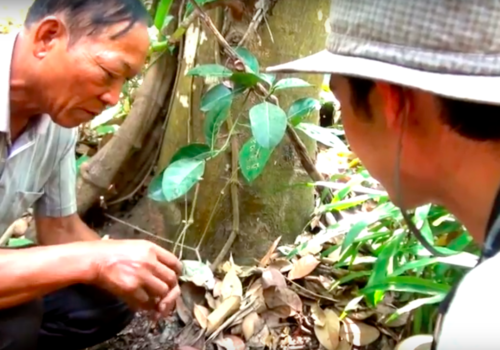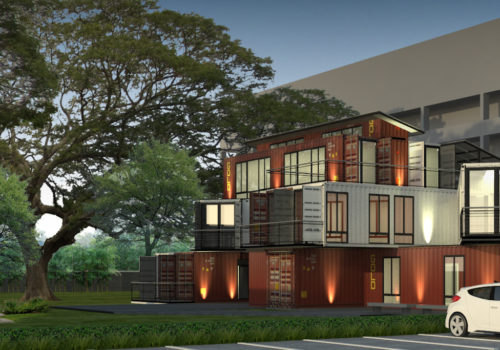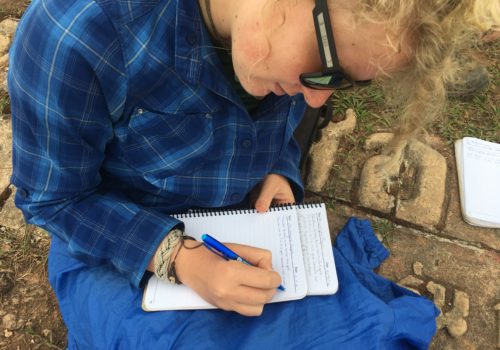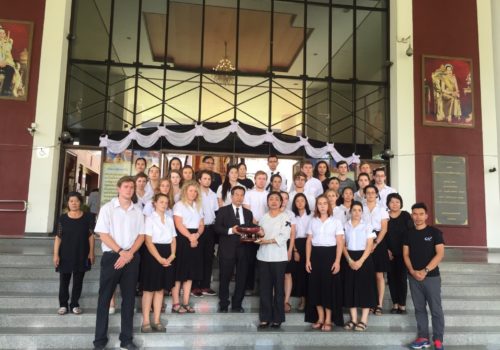
Laurie explaining the role of the Ping river in urban sustainability
This past week ISDSI students fanned out across the city collecting and analyzing data to develop sustainability indicators for Chiang Mai city. This was a great exercise in experiential learning and they were able to apply their Thai language skills as well as knowledge of the city and sustainability issues in general.
Early in the week, we had two activists with the Rak Baan Rak Muang group come and talk with the students, sharing about their struggle to make Chiang Mai more sustainable. (Read more about them here.)
The 33 students were divided into 8 groups, with a group of 4 in the morning and 4 in the afternoon. They focused on four key issues: traffic, walkability, the availability of organic vegetables and the Ping river.
Monday was spent planning their studies, with Tuesday and Wednesday focused on data collection. Thursday was a frenzied day of data analysis and preparing posters for Friday’s presentation and poster session. The Friday poster session was organized like those at a professional conference, with all eight posters up, time to browse and look at the posters. Each group then presented their methods, findings, and questions for further research.
The focus of the exercise was twofold. First, to give the students a chance to apply what they have been studying for the last five weeks — from Thai language to knowledge about sustainability and Thai society. The second goal was to gather some useful data about what is going on in Chiang Mai. The research the students did will be given to the Rak Baan Rak Muang group so it can be used in helping make a more sustainable city.
Rapid surveys like this can be very valuable for getting a sense of what is going on in an area (a city, village or landscape), and the students did a terrific job figuring out indicators and collecting the data. The studies are exploratory, not definitive, and so provide a good starting point for further research and generating more questions for follow-up studies later on.
Each study is available below as a PDF file:
Organic Produce, Organic Markets



